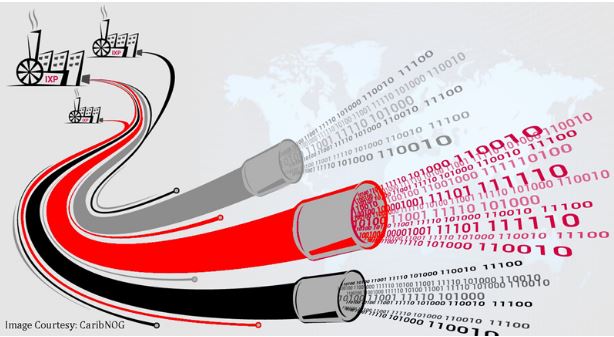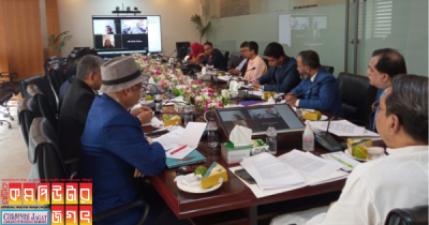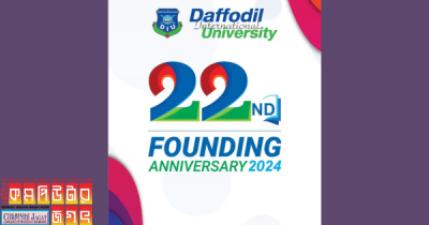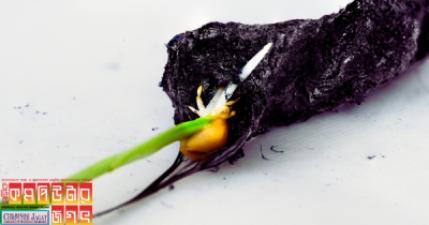Mohammad Abdul Haque Anu
The global Covid-19 pandemic has taught people to use the Internet more than just to communicate and entertain themselves. People are now using several applications (apps) to improve their experience in many areas through the Internet including social media, lifestyle, education, entertainment, gaming, business communication, mobile financial services, e-commerce, Zoom and Team meeting platform etc. As a result, the use of internet-based apps is increasing. This is having an impact on mobile data and broadband internet. According to a study, people are using the internet for 6 to 8 hours every day during the pandemic. Earlier, people used to utilize internet for an average of 2 hours. Internet usage has multiplied during this period. In the new reality of Covid-19, the amount of internet bandwidth usage in the country has increased at a tremendous pace.
The largest part of this bandwidth is being provided by the government company Bangladesh Submarine Cable Company Limited (BSCCL). Under the auspices of this state-owned company, the Optical Fiber Submarine Communication Cable Systems consortium through Southeast Asia-Middle East-Western Europe (SEA-ME-WE-4) consisted of 600 gigabits per second (Gbps) and SEA-ME-WE-5 consortium. Bangladesh is using 1300 Gbps internet bandwidth.
The SEA-ME-WE-4 optical fiber submarine cable is approximately 1,600 km long and provides the primary Internet pole between Southeast Asia, the Indian subcontinent, the Middle East and Europe. The SEA-ME-WE-5 optical fiber submarine cable is about 20,000 km long. It is providing broadband communication with a design capacity of 24 terabits per second through 19 landing points.
Development work on the SEA-ME-WE-6 consortium is currently underway. 15 companies have joined this consortium. These areSingtel (Singapore), BSCCL (Bangladesh), Telekom (Malaysia), SLT (Sri Lanka), Dhiraagu (the Maldives), Ni2i (India), TWA (Pakistan), Djibouti Telecom (Djibouti), Mobilink (Saudi Arabia), China Mobile International, China Telecom Global Limited China, China Unicom, Microsoft (United States), Telecom Egypt, and Orange (France). SEA-ME-WE-6 is a 19,200km submarine cable system between Singapore and France (Marseille), crossing Egypt through terrestrial cables. The SMW6 cable system consists of 10 fiber pairs, with 12.6Tbps per fiber pair and 126Tbps system capacity, using the latest SDM technology, cost approximately US$500million.It is hoped that in 2024, Bangladesh will join SEA-ME-WE-6.
SEA-ME-WE 6 cable map, Source: SMW6 consortium
According to Bangladesh Telecommunication Regulatory Commission (BTRC) data, while the demand for internet bandwidth usage was 261.249 Gbps in 2016, the demand for internet bandwidth increased to 2656 Gbps in 2021. In 2016, 2017, 2019 and 2020, the demand increased by 7.8 percent, 81.91 percent, 23.53 percent and 85.28 percent, respectively, to 474.18 Gbps, 696.960 Gbps, 965.620 Gbps and 1628.256. Gbps bandwidth increases. From 2016 to 2021, the amount of internet bandwidth usage has increased by 917.04 percent.
Internet Bandwidth in Bangladesh
At present, the demand for the internet is being met with 7 International Terrestrial Cables (ITCs). According to the BTRC ,the 7 licensed ITC service providers are Fiber at Home Limited, Summit Communications Limited, Novocom Limited, One Asia Alliance Communication Limited, BDLink Communications Limited, Mango Telecom Services. ITC operators also have unlimited capacity to import bandwidth from Indian submarine cable companies. However, the challenge here is the over dependency on one country.
Seeing the ever-increasing demand for bandwidth, Posts and Telecommunications Minister Mustafa Jabbar said at a recent event, "We will soon license two new submarine cables, primarily in the private sector." BTRC is already working on the licensing guideline. Licensed companies will build, operate, and repair cable line submarine cable systems.
According to the BTRC, the total number of mobile phone subscribers in the country at the end of December 2021 were 161.02 million. The number of internet subscribers are 12 crore 36 lakh and 20 thousand. Of these, the number of mobile internet subscribers are 11 crore 36 lakh and 30 thousand. The number of ISP and PSTN internet subscribers are 19 million. According to BTRC's licensing practice, BSCCL and ITCs provide on-demand bandwidth to International Internet Gateways (IIGs) in the country. IIGs provide bandwidth to Internet Service Providers (ISPs) and mobile phone operators on demand.
A research report by UCB Asset Management last year predicted that the number of mobile data users in Bangladesh would double by 2030. UCB Asset Management Commercial Bank is a subsidiary of the United Commercial Bank. The report hopes that by 2025, 54% of the total subscribers will be included in the 4G network. Six percent of the population will also be covered by the 5G network and very few people will be dependent on the 2G and 3G networks.
Considering the users’ projection; the government and the concerned implementing organizations must take initiatives to increase the bandwidth immediately to enable more compatibility and efficiency for the continuously increasing users of Bangladesh.
Author: Secretary General, Bangladesh Internet Governance Forum & Member, Bangladesh Internet Freedom Initiative Working Group







.png)






০ টি মন্তব্য